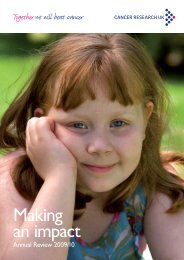Cancer Research UK Annual Review 2011/12
Cancer Research UK Annual Review 2011/12
Cancer Research UK Annual Review 2011/12
You also want an ePaper? Increase the reach of your titles
YUMPU automatically turns print PDFs into web optimized ePapers that Google loves.
<strong>12</strong> | Our scientists are finding the answers<br />
Lorraine Hill, 54, from South Wales<br />
Breast cancer<br />
breakthrough<br />
Thousands of women in the<br />
<strong>UK</strong> today survive breast cancer<br />
thanks to advances in research<br />
– we’ve been at the heart of this<br />
progress. This year, our scientists<br />
conducted a landmark study<br />
that will completely change the<br />
way we look at breast cancer.<br />
Professor Carlos Caldas explains<br />
what the results could mean for the<br />
future of breast cancer treatment.<br />
What did your team do<br />
‘Currently, doctors examine<br />
breast tumour samples under a<br />
microscope and classify the disease<br />
according to the type of cells we find,<br />
as well as testing for the presence<br />
of specific molecules. This approach<br />
guides decisions about a patient’s<br />
treatment and has saved many lives.<br />
But it doesn’t always predict how<br />
a tumour will respond to particular<br />
treatments.<br />
In our new study, we used<br />
sophisticated equipment, currently<br />
beyond the scope of today’s hospital<br />
labs, to delve deeper and analyse the<br />
genetic fingerprints of 2,000 breast<br />
tumour samples.<br />
Almost two-thirds of women diagnosed with breast cancer now survive beyond 20 years.




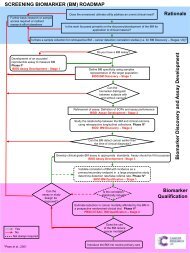
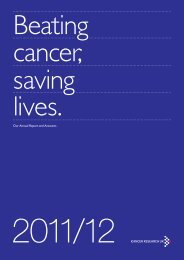
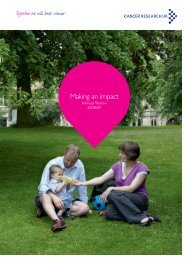
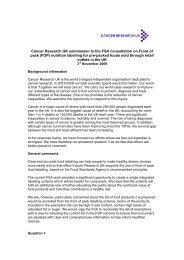
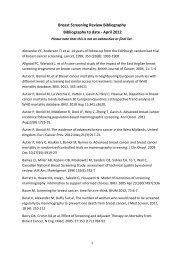
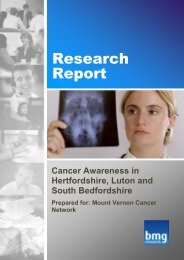
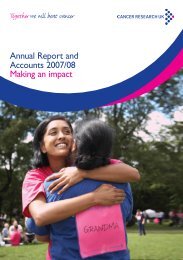


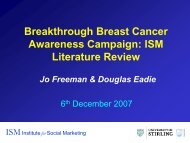
![[PDF] Cancer Research UK's strategy 2009 - 2014](https://img.yumpu.com/29239422/1/184x260/pdf-cancer-research-uks-strategy-2009-2014.jpg?quality=85)
